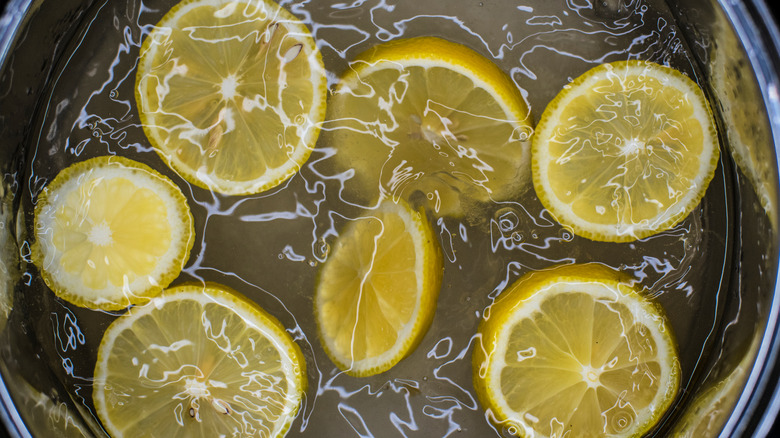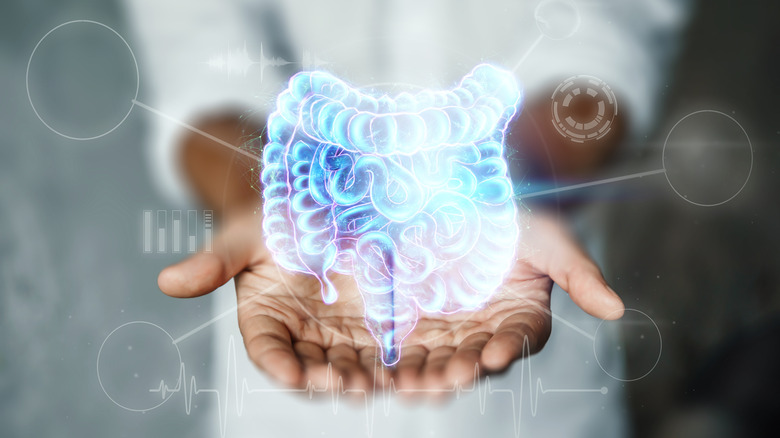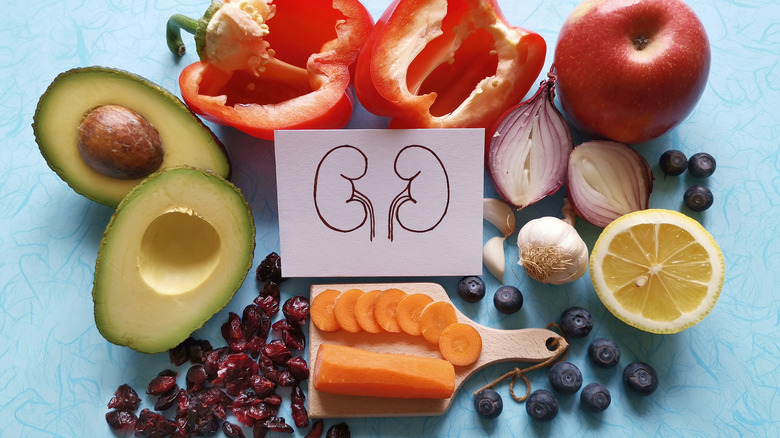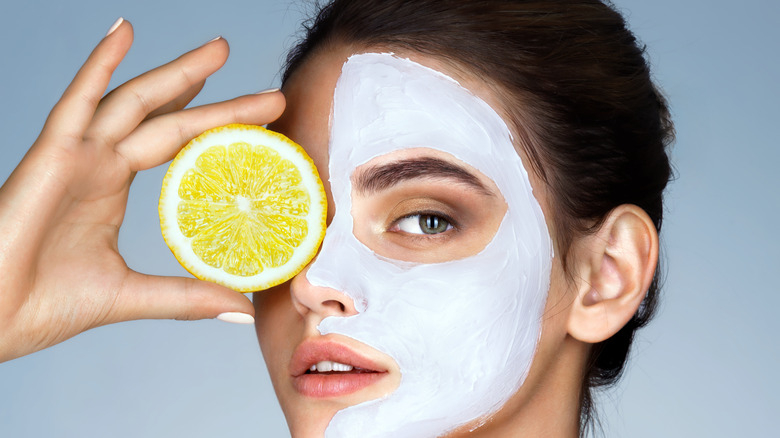
Lemons are more than just a fruit that adds a hint of flavor to dishes or drinks. They can enhance marinades, sauces, dressings, summer beverages, baked goods, and much more. Lemons are highly beneficial for your health as they are rich in vitamin C, which may reduce the risk of certain types of cancer, as noted by the National Institutes of Health, Office of Dietary Supplements.
Boiling lemons is simple. Use 1 liter of water and four lemons. Rinse the lemons thoroughly, cut them in half, and squeeze 1 tablespoon of juice into a large pot for boiling. Chop the squeezed lemon halves, add them to the pot with 250 milliliters of water, and boil for three to five minutes. Let it cool, then add your choice of lemon juice, water, or beverage, and enjoy. You can prepare more in advance and store it in the fridge for the upcoming week by quadrupling the recipe. Besides adding a delightful flavor to drinks, boiled lemons offer numerous health benefits.
Aids digestion

Shape suggests drinking warm boiled lemon water first thing in the morning for optimal benefits, particularly for aiding digestion.
As we age, our stomach acid levels decrease, which means our stomachs don’t break down food as effectively as they once did, according to the Cleveland Clinic. Adding warm lemon water helps compensate for the reduced acid levels, aiding digestion. The citrus flavonoids in lemons work alongside your body’s naturally occurring acid, while the warm water you drink helps the intestines contract, breaking down food (via Shape).
A 2016 study in Gastroenterology Nursing supports the claim that warm — or even hot — lemon water aids the intestines in removing waste more effectively. Participants in this study consumed 200 milliliters of water at 98.6 degrees Fahrenheit. The warm temperature of the water facilitates the movement of food and waste products through the intestines by stimulating peristalsis, also known as muscle contractions.
Prevents kidney stones

Kidney stone disease is a urological disorder occurring when substances within the kidney crystallize and disrupt normal kidney functions (via Advances in Urology). Approximately 12% of the global population suffers from kidney stones. Symptoms include cramps, back or side pain, blood in urine, urinary tract infections, and blockage of urine flow. Nausea or vomiting may also occur. While doctors can provide pain relief, there is no cure for kidney stones, so prevention is crucial. Drinking about 2 liters of water daily, according to Advances in Urology, can help prevent kidney stone formation.
According to the Urology Care Foundation, water dilutes the substances in urine that eventually form stones. The UCF recommends incorporating lemon into your daily water intake. Try adding frozen lemon to your water instead of ice cubes for color and flavor. Add lemon and honey to hot water during cooler weather. These drinks can help combat kidney stones because lemon contains citrates, which prevent crystals from forming into full-fledged stones.
Improves skin appearance

According to a 2017 review in Nutrients, vitamin C is essential for your skin’s health. Your skin has two layers that protect your internal organs, muscles, and tissues from the harsh environment. The external surface, known as the epidermal layer, serves as a barrier to the outside world. The internal or inner dermal layer provides nutritional support to the external layer and contributes to skin elasticity. Intertwined within these layers are high levels of vitamin C, which boost collagen synthesis and antioxidants to help protect the skin against aging and other stresses. The review also noted the correlation between vitamin C from foods (like fruits and veggies) and optimal skin health.
A 2016 study in Food Chemistry demonstrated the positive impact of citrus juice and its vitamin C properties on the skin through oral ingestion and topical application. Researchers found that a citrus-based juice mixture might reduce skin cell damage, improve skin thickness, delay wrinkle formation, and enhance the appearance of wrinkles. The study’s utilization of boiled lemon water illustrates that vitamin C may prevent premature skin aging and have a long-lasting positive effect on skin health.
“`




